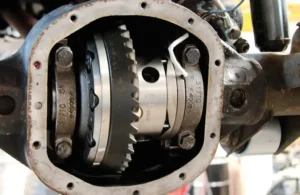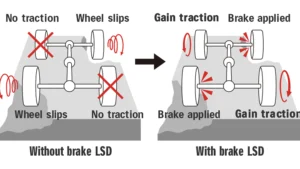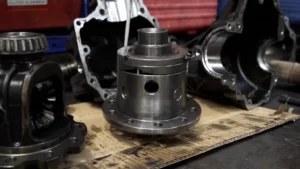Driving in poor weather conditions, such as rain, snow, or ice, can be challenging and hazardous. One technology that can greatly improve vehicle handling and traction in these conditions is a limited slip differential (LSD). Understanding the necessity of LSDs for poor weather driving can help drivers appreciate the importance of this technology in ensuring safety and control on the road.

Challenges of Poor Weather Driving
Poor weather conditions can significantly reduce traction between the tires and the road surface. This reduction in traction can lead to wheelspin, loss of control, and increased stopping distances. In extreme cases, it can result in accidents and collisions. Vehicles without LSDs are more prone to these issues, especially when one wheel encounters a low-traction surface, such as ice or snow.
How LSDs Improve Poor Weather Driving
LSDs are designed to transfer power to the wheel with better traction, helping the vehicle maintain forward momentum and control. Unlike open differentials, which distribute power equally to all wheels, LSDs can prevent one wheel from spinning excessively, even when the other wheel is on a low-traction surface. This improves traction, stability, and overall driving performance in poor weather conditions.
Types of LSDs
There are several types of LSDs, including clutch-type LSDs and Torsen (Torque Sensing) LSDs. Each type has its own advantages and disadvantages, but they all serve the same purpose of improving traction and control in challenging driving conditions.
Benefits of LSDs for Poor Weather Driving
Improved Traction: LSDs help vehicles maintain traction on slippery surfaces, reducing the risk of wheelspin and loss of control.
Enhanced Stability: By transferring power to the wheel with better traction, LSDs improve vehicle stability and control, especially during acceleration and cornering.
Safety: LSDs can help prevent accidents and collisions by improving traction and control in poor weather conditions.
Versatility: LSDs are not only beneficial in snow and ice but also in other poor weather conditions, such as rain and mud.
Conclusion
In conclusion, a limited slip differential is a valuable technology for improving vehicle performance and safety in poor weather conditions. By improving traction, stability, and control, LSDs help drivers navigate challenging road conditions with confidence and safety. Whether driving on snow, ice, or wet roads, LSDs can make a significant difference in ensuring a safe and enjoyable driving experience.



